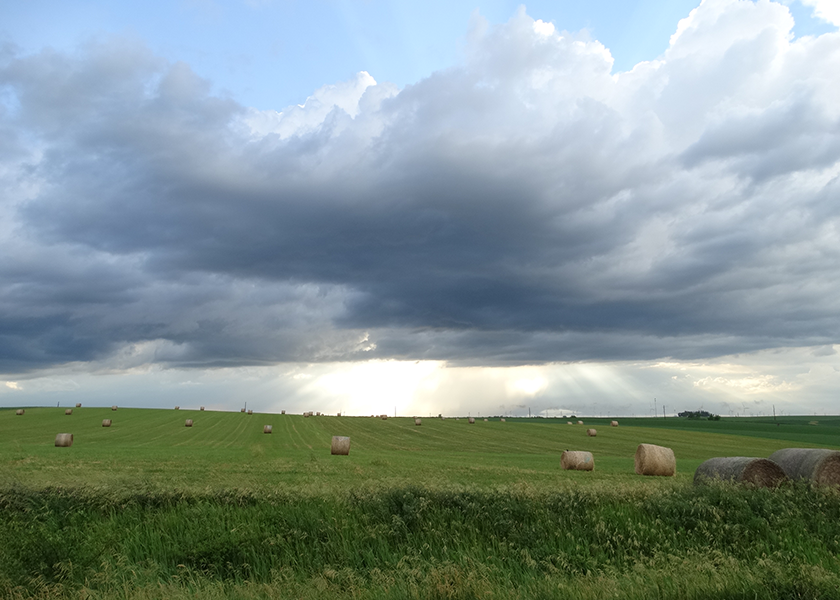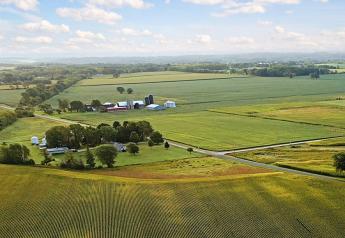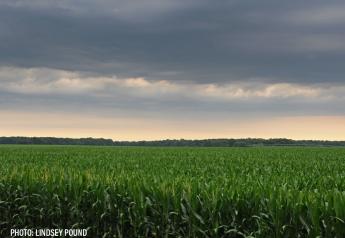Evening Report | November 3, 2023

Check our advice monitor on ProFarmer.com for updates to our marketing plan.
Your Pro Farmer newsletter is now available... Corn and soybean harvest is moving toward the finish line, with the next crop estimates from USDA coming in the Nov. 9 Crop Production Report. Barring any supply-side surprises, adjustments to usage forecasts in the 2023-24 balance sheets are also likely to be minor. Given El Niño impacts, the potentially biggest changes could be to USDA’s global production forecasts, with a particular focus on South America. While conditions have improved a little, South American crop consultant Dr. Michael Cordonnier lowered his Brazilian crop estimates given erratic weather early in the growing season. In Washington, focus remains on trying to get a permanent spending measure in place for fiscal year 2024, which started on Oct. 1. With the deadline for the current stopgap measure approaching on Nov. 17, it appears another continuing resolution will be needed. It’s becoming clearer an extension of the 2018 farm bill will be needed – potentially for a full year or more. A new farm bill will likely start with 2025 crops, not 2024. We cover this and a host of other ag policy issues facing farmers in our News page 4 feature this week. On the economic front, the Fed paused for a second month in a row – and could be done with its monetary policy tightening cycle. We cover all of these items and much more in this week’s newsletter, which you can access here.
Odds surge for one-year farm bill extension if House GOP plans to cut SNAP funding prevail... House GOP efforts to find billions of dollars in savings to help reform Title I safety net programs will go nowhere with Democrats and will be blocked in the Senate, sources advise. One House GOP proposal under view would place new guardrails on a recent Biden administration update to the Thrifty Food Plan that has significantly increased SNAP/food stamp spending.
Another issue in the House: There are around 20 “orphan” programs that would need roughly $100 million in additional funding to keep going. But that extra money is a tough sell among rebel GOP members and other conservatives in the House.
Jobs growth slows dramatically in October... The U.S. economy added 150,000 non-farm payrolls in October, the lowest monthly gain since January 2021. August and September payrolls were revised down a combined 101,000. The unemployment rate ticked up to 3.9%. Average hourly earnings rose 0.2% in October and were up 4.1% over the past 12 months, showing deceleration.
Slowing jobs growth adds to ideas the Fed is done raising interest rates.
HPAI confirmed in Arkansas broiler pullet operation, endemic concerns rise... USDA’s Animal and Plant Health Inspection Service (APHIS) confirmed a case of highly pathogenic avian influenza (HPAI) in a commercial broiler breeder pullet operation in Arkansas, affecting approximately 31,600 birds. This follows recent confirmations of HPAI in commercial turkey operations in Meeker County, Minnesota; Beadle County, South Dakota; and Merced County, California. The situation in South Dakota involves eight affected flocks, totaling 321,300 turkeys, while Minnesota has reported 10 commercial flocks and two backyard flocks with a combined total of 362,450 birds affected. Outbreaks are spreading in counties that had previously reported HPAI cases, raising concerns the disease may be becoming endemic in certain areas.
Mexico reports first HPAI cases of the season... Mexico reported a case of H5N1 HPAI on a poultry farm in the northwestern state of Sonora with 105,000 laying hens. Additionally, another farm located 3 kilometers (about 1.83 miles) away has also been identified as having H5N1 HPAI, impacting 54,000 birds. As a precautionary measure, Mexican authorities have implemented a quarantine in the affected area. Officials are considering a vaccination strategy that may be implemented this month.
Mexico primarily relies on domestic poultry consumption, with only 1% of its poultry production being exported, according to the U.S. agricultural attaché in the country.
FDA proposes revoking use of brominated vegetable oil in food due to health concerns... The Food and Drug Administration (FDA) released a proposal to revoke the authorization for the use of brominated vegetable oil (BVO) in food. BVO is a vegetable oil modified with bromine, often used in small amounts to prevent citrus flavorings from separating in certain beverages. The proposal comes in response to recent data from studies conducted by the agency, which have revealed adverse health effects in animals at levels more closely resembling human exposure. These findings include the bioaccumulation of bromine and toxic effects on the thyroid, a gland crucial for regulating various bodily functions. Given the unresolved safety questions and the potential risks associated with BVO, the FDA said it can no longer conclude that its use in food is safe. The proposed rule for revoking the authorization of BVO is set to be published in the Federal Register.
The European Union and Japan have already banned BVO. California recently signed a bill into law that will prohibit its use, along with Red Dye 3, potassium bromate and propyl paraben in food produced and sold in the state starting in 2027.
U.S. ports secure $653 million in funding for infrastructure projects... The White House announced over $653 million in awards for port infrastructure projects spanning 26 states and territories, as part of an effort to fortify supply chains in the aftermath of the pandemic. Notable allocations include $52.6 million for a rail expansion and roadway improvement endeavor in Long Beach, California, and $54.2 million for a port terminal expansion in Tacoma, Washington.
These awards encompass 41 projects, selected from a competitive pool of 153 applications seeking a total of $2.8 billion in financing. While around a quarter of these projects are situated on the East Coast, a similar proportion is located inland and, in the Midwest, including initiatives in Arkansas and Wisconsin. Furthermore, seven projects have been earmarked for Alaska.
Addressing the challenges posed by supply chain disruptions and bottlenecks, Transportation Secretary Pete Buttigieg emphasized the objective of enhancing American supply chains beyond their pre-pandemic state. Nearly half of the projects are expected to benefit historically disadvantaged communities.
Approximately two-thirds of the $653 million funding comes from the $1.2 trillion Bipartisan Infrastructure Law, which allocates $450 million annually for port infrastructure over five years. The remaining one-third has been appropriated by Congress.






